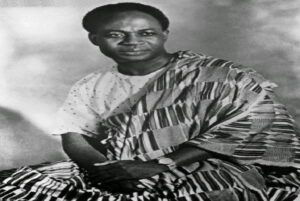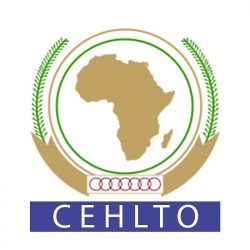OFORI KUMA I
Ofori Kuma I, (“Kuma” means “the Younger”). (? – 1731), also known as Kwao Safori, or Sakyiama Tenten, was the founder of the state of Akuapem, 30 mi (48 km) northeast of Accra.
Ofori Kuma was the nephew of Ofori Panin (q.v), ruler of Akyem Abuakwa, about 50 mi (80 km) northwest of Accra, who deputed him and his uncle to aid the Guan communities in the Akuapem hills in their rebellion against the Akwamu, then the dominant group in the region, whose capital Nyanawase, was about 20 mi (32 km) northwest of Accra.
The Guan communities, which subsequently adopted the name “Akuw-apem” (“Thousand Companies”), together with their ga and Krobo neighbours, had been subjects of the Akwamu state for at least a century. When a civil war broke out in 1728, an initial appeal by Guan for outside military assistance, made in the hope of replacing the tyranny of the reigning Akwamuhene (ruler of Akwamu), Ansa Kwao, with the anticipated milder rule of Amu, another member of the Akwamu royal family then living at Otublohum in Accra, met with no response. A similar request was then specifically directed to the occupant of the Akyem Abuakwa stool.
The entry of the Akyem Abuakwa contingent, led by Ofori Kuma, changed the character of the war; for after this the other states, including Akyem Kotoku, further west, and Agona, northwest of the coastal port of Winneba, also entered the war. They entered not only to aid the Guan rebels, but also to destroy Akwamu power, thereby making it possible to open a direct trade link with the coastal forts of the English, Dutch, and Danes.
By 1730, Ofori Kuma and his allies had succeeded in expelling the Akwamu beyond the Volta River, to the east, and had destroyed their kingdom and empire on the right (west) bank of the Volta. Ofori Kuma was invited by the Guan people to become the Omanhene (paramount chief) of Akuapem, and accepted the invitation. His grandmother, his mother, and his aunt all occupied the Ohemaa (Queen mother) stool of Akuapem. His new state also gained direct direct access to the lucrative European trade on the eastern section of the Gold Coast. It was, however, Akyem Abuakwa that was the principal beneficiary of the trade, as Ofori Kuma’s Akuapem subjects were predominantly farmers, with little to offer in the way of trade.
Ofori Kuma died in 1731 whilst still fighting against the Akwamu. But the new dynasty he had founded survived his death. The present dynasty of the Akuapem paramount stool is directly descended from him.
M. A. KWAMENA-POH






